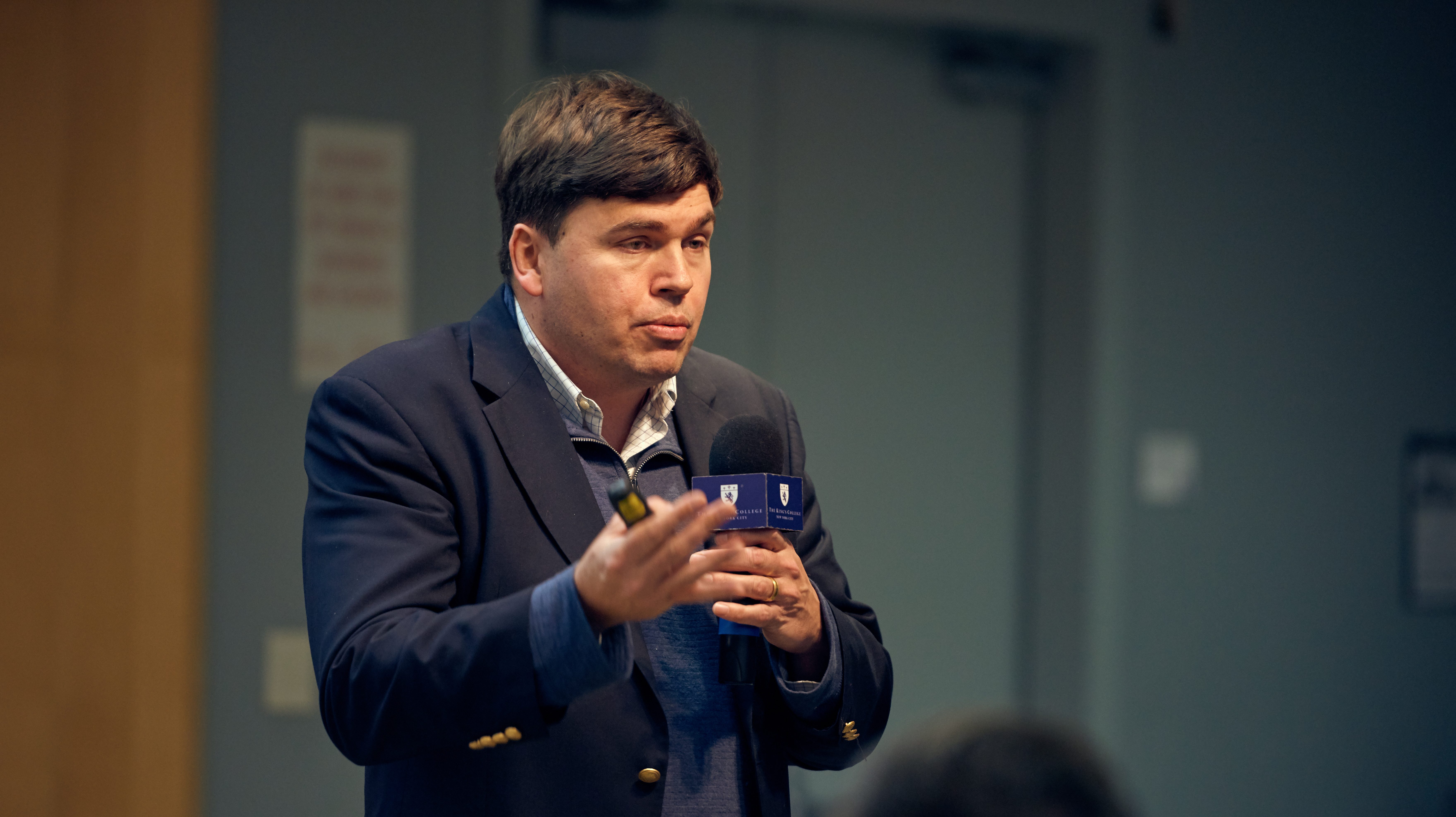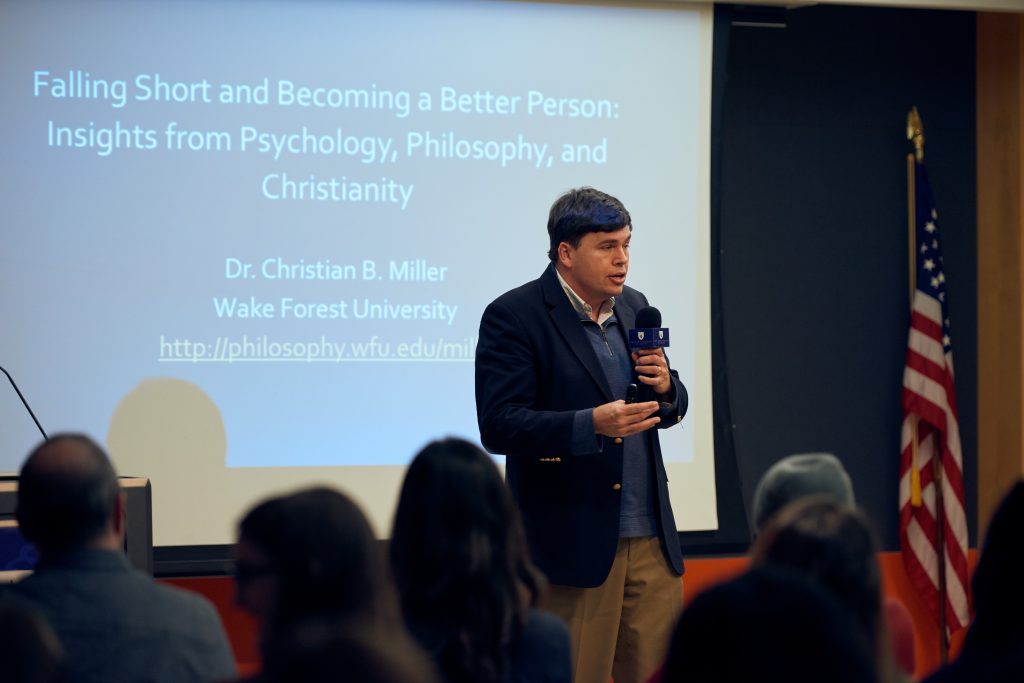Dr. Christian Miller Visits King’s to Discuss Moral Transformation
On February 19 and 20, Dr. Joshua Blander and the Society of Christian Philosophers hosted philosophy professor and author Dr. Christian Miller for a series of lectures and workshops at King’s.

On February 19 and 20, Dr. Joshua Blander and the Society of Christian Philosophers hosted philosophy professor and author Dr. Christian Miller for a series of lectures and workshops at The King’s College. Over 115 students and staff and faculty members attended Miller’s evening lecture, “Falling Short and Becoming a Better Person.”
Miller is the A.C. Reid Professor of Philosophy at Wake Forest University and director of The Character Project, funded by the John Templeton Foundation and Templeton World Charity Foundation. He is the author of over 75 papers as well as two books with Oxford University Press, Moral Character: An Empirical Theory (2013) and Character and Moral Psychology (2014). Miller’s first trade book, The Character Gap: How Good Are We?, has been reviewed by the Wall Street Journal, Christianity Today, and The Gospel Coalition. His writing has appeared in the Wall Street Journal, Slate, and Relevant Magazine.
Blander arranged Miller’s visit through a grant from the Society of Christian Philosophers, which promotes fellowship among Christian philosophers and stimulates study and discussion of issues which arise from their Christian and philosophical commitments. While at King’s, Miller conducted workshops attended by faculty members from all disciplines, attended a breakfast with members of the Publius Society, a student organization, met individually with students hoping to attend graduate school, and delivered Tuesday evening’s lecture.
The evening lecture, co-hosted by the Interregnum Committee, focused on themes from The Character Gap. We tend to think of ourselves as generally good and helpful people but our assessments, Miller argued, are incomplete. “For most of us, our character is not virtuous. Most of us today do not have any of the moral virtues,” Miller said. As an illustration, Miller told the story of Walter Vance, a 61-year-old man who died after suffering a heart attack while Black Friday shopping at Target. Shoppers ignored Vance’s clear distress, in some cases stepping over his body. Research in psychology furnishes evidence that Vance’s story is indicative of a larger pattern of people failing to exhibit virtuous behavior. For instance, participants in various studies were generally unlikely to help people in danger and likely to cheat when given the opportunity. “I conclude that most of us are not good people,” Miller said after examining a number of case studies.
There is a gap between a virtuous character and our actual character, but, Miller explained, moral transformation is possible. Miller offered strategies for closing the gap, including finding role models to emulate and educating ourselves about our tendency towards morally problematic behavior. Christians have particular modes of assistance through rituals that orient behavior towards virtuous patterns, communal liturgical practices, and the influence of the Holy Spirit. “From a Christian perspective, God and human beings are working together throughout the long process of developing a good, virtuous character,” Miller concluded. “We’re not in it alone.”
Provost Dr. Mark Hijleh praised Miller’s visit, saying, “Dr. Miller shared a number of thought-provoking ideas from his important research on the integration of virtue development in the context of the academic enterprise. I am especially grateful for the time he spent in presentation and discussion with the faculty assembly during his visit. Special thanks to Dr. Blander, the Society of Christian Philosophers, and the Interregnum Committee for partnering with us in this initiative.”





